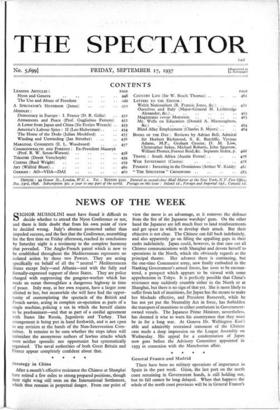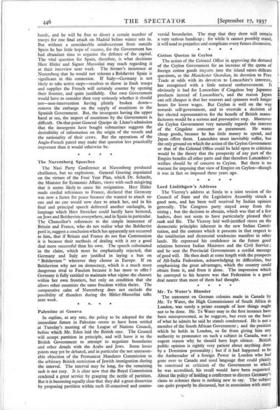General Franco and Madrid There have been no military operations
of importance in Spain in the past week. Gijon, the last port on the north coast remaining in Government hands, is still holding out, but its fall cannot be long delayed. When that happens the whole of the north coast provinces will be in General Franco's hands, and he will be free to divert a certain number of troops for one final attack on Madrid before winter sets in. But without a considerable reinforcement from outside Spain he has little hope of success? for the Government has had abundant time to organise the defence of the capital. The vital question for Spain, therefore, is what decisions Herr Hitler and Signor Mussolini may reach regarding it at their interview next week. The former's insistence at Nuremberg that he would not tolerate a Bolshevist Spain is significant in this connexion. If Italy—Germany is not likely to take active steps—resolves to throw in fresh troops and supplies the French will certainly counter by opening their frontier, and quite justifiably. Our own Government would have to consider then very seriously whether it should not—non-intervention having plainly broken down— remove the embargo on the supply of munitions to the Spanish Government. But, the insurgents having the upper hand at sea, the import of munitions by the Government is difficult. On that point General Queipo de Llano's admission that the insurgents have bought submarines suggests the desirability of information on the origin of the vessels and the nationality of their crews. But the operations of the Anglo-French patrol may make that question less practically important than it would otherwise be.











































